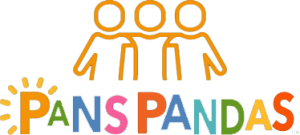For Educational Professionals

Children and young people with PANS and PANDAS can suddenly struggle in school, showing symptoms like obsessive thoughts, tics, anxiety, regressive behaviours, eating issues, and sleep problems. These conditions can also lead to sensory needs, handwriting deterioration and cognitive changes. Sometimes, special educational needs and disabilities (SEND) appear without prior indications.
On this page, you will find resources to help spot early signs at home and school. We offer guidance for parents, teachers, and schools, along with podcasts, recorded training sessions, and updates for Local Authorities. You can also sign up for our monthly teacher training sessions.
Scroll down to discover more.
Good Practice Guide for Schools
Spotting the Early Signs
Summary for Teachers
Education Padlet
Education Awareness Poster
Primary School Video
Individual Healthcare Plans
SEND in the Experts Podcast
Teacher Training
Parents Guide to Education and PANS and PANDAS
Local Authority Update
Ask the Educational Psychologist
Emotionally Based School Avoidance – resources
Understanding Education, Health and Care Plans (EHCPs)
The EHCP application process
One Voice Education
We asked the children/young people who are living with PANS or PANDAS a series of questions about their experiences in education. This is what they told us. We would like to thank all of the children who participated for their courage and honesty.
“As you will understand we are all very concerned about this child. The rapidity of change and the extreme level of anger in his behaviour is exceptional. I am aware that, although uncommon, it is possible for a physical reason to result in such a change in behaviour. I have spoken to his parents about this and suggested that medical advice is sought as I feel it is urgently necessary for all possibilities to be investigated to help this child return to feeling and behaving as himself.”
This quote is from a headteacher. The child they mention was subsequently diagnosed with PANS.
There are currently generally low levels of awareness about PANS and PANDAS amongst education professionals, including how these conditions can impact on a child’s ability to learn and manage the school environment.
Schools have a crucial role in both spotting the early signs of the condition and providing the right support and understanding. Putting in early support can make a real difference to a child’s educational outcomes.


